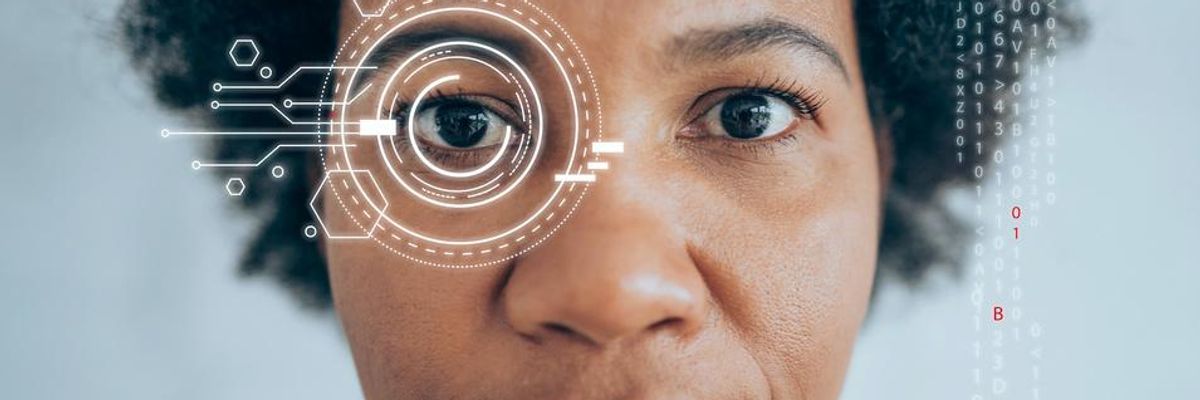Digital rights groups on Wednesday applauded lawmakers across the European Union after they passed a draft law that would strictly regulate the use of artificial intelligence including facial recognition technology and chatbots, potentially setting a new standard for protecting the public from the misuse of AI—but noted that some provisions could exclude vulnerable people.
The European Parliament passed a major legislative hurdle as it voted in favor of the draft rules in the Artificial Intelligence Act, with 499 lawmakers supporting the provisions, 28 opposing, and 93 abstaining from voting.
The sweeping proposal would require makers of "generative AI systems" such as the chatbot ChatGPT and "deepfake" videos to publish summaries of the material they use to train their systems and prove that the machines will not generate illegal content. Failure to prove the safety of their products could result in companies being compelled to delete their applications or being fined up to 7% of their revenue, which could amount to hundreds of millions of dollars.
The law would also prohibit companies from scraping biometric data from social media to create databases of users, a practice that U.S. company Clearview AI was barred from continuing last year after a court settlement resulting from a strong state-level law in Illinois.
Facial recognition provisions emerged in recent days as a key point of contention between progressive lawmakers and members of the center-right European People's Party (EPP), who filed amendments last week to include exceptions to a ban on the technology in public spaces. The exceptions would have applied when police were searching for missing children, violent criminals, and accused terrorists.
Despite the "aggressive last-minute push," said the European Digital Rights (EDRi) coalition, "the MEPs showed that they heard the voices of over 250,000 people across Europe who want keep our public spaces free of facial recognition and other biometric mass surveillance systems."
The coalition delivered a petition signed by people from across the continent last week, demanding a ban on facial recognition technology use in public spaces.
"This is the clearest signal yet that the European Parliament has put forward the protection of all our rights to live freely and with dignity in public spaces, over private profits and false claims of 'security,'" said Ella Jakubowska, senior policy adviser at EDRi.
The draft law includes provisions banning "emotional recognition"—which has been used to identify tiredness in truck drivers in China—in schools and workplaces, as well as public facial recognition surveillance, predictive policing, and social scoring.
With the recent introduction of ChatGPT and new capabilities in the field of AI rapidly developing, EDRi called the passage of the draft law "in many ways a win for fundamental rights."
The coalition was among the critics noting that the AI Act in its current form does not extend protections to migrants at border crossings in the E.U. "even though AI systems are increasingly developed to track, control, and monitor migrants in new and harmful ways."
"The list of prohibited practices that was adopted today does not include the use of AI to facilitate illegal pushbacks, or to profile people on the move in a discriminatory manner," said EDRi. "Without these prohibitions, the European Parliament reinforces the panopticon at the E.U.'s borders."
As members of European Parliament, the European Commission, and the Council of the European Union negotiate the final legislation—which could be passed into law later this year—the digital rights group Access Now said policymakers should "add bans on automated risk-assessment in migration procedures and predictive analytics systems used to curtail migration movements."
"In this historic AI Act vote, the European Parliament called for a society free from mass surveillance," said Caterina Rodelli, E.U. policy analyst at Access Now. "However, it has drawn a thick line between the haves and the have nots—the lack of bans for AI systems used in migration confirms the E.U. does not seek to protect fundamental rights when migrant people are the rights-holders."
"Without prohibitions in the migration context," added Rodelli, "the E.U. is sacrificing the rights of people on the move and will deliberately put marginalized communities at risk."




